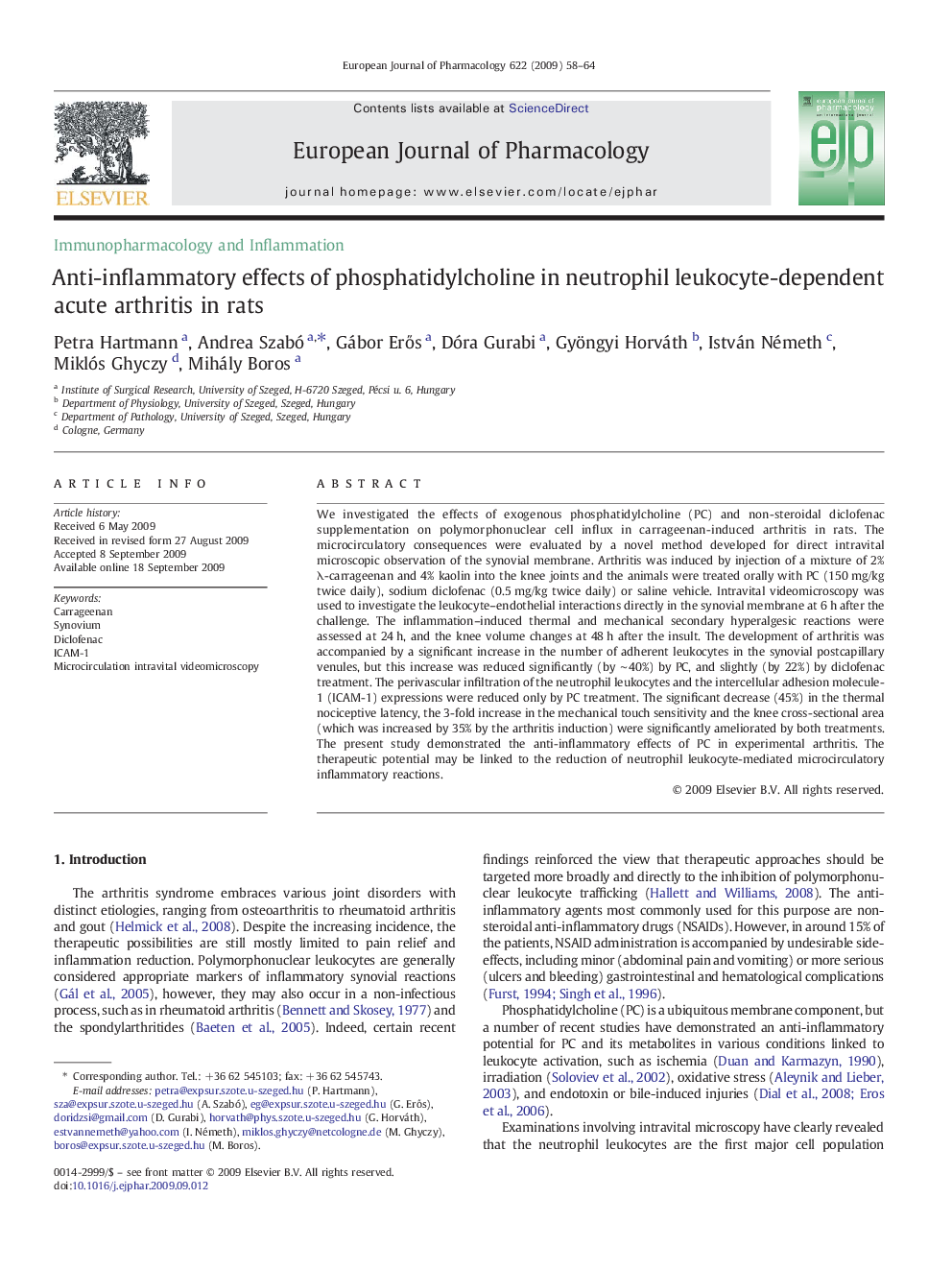| Article ID | Journal | Published Year | Pages | File Type |
|---|---|---|---|---|
| 2534010 | European Journal of Pharmacology | 2009 | 7 Pages |
Abstract
We investigated the effects of exogenous phosphatidylcholine (PC) and non-steroidal diclofenac supplementation on polymorphonuclear cell influx in carrageenan-induced arthritis in rats. The microcirculatory consequences were evaluated by a novel method developed for direct intravital microscopic observation of the synovial membrane. Arthritis was induced by injection of a mixture of 2% λ-carrageenan and 4% kaolin into the knee joints and the animals were treated orally with PC (150 mg/kg twice daily), sodium diclofenac (0.5 mg/kg twice daily) or saline vehicle. Intravital videomicroscopy was used to investigate the leukocyte-endothelial interactions directly in the synovial membrane at 6 h after the challenge. The inflammation-induced thermal and mechanical secondary hyperalgesic reactions were assessed at 24 h, and the knee volume changes at 48 h after the insult. The development of arthritis was accompanied by a significant increase in the number of adherent leukocytes in the synovial postcapillary venules, but this increase was reduced significantly (by â¼Â 40%) by PC, and slightly (by 22%) by diclofenac treatment. The perivascular infiltration of the neutrophil leukocytes and the intercellular adhesion molecule-1 (ICAM-1) expressions were reduced only by PC treatment. The significant decrease (45%) in the thermal nociceptive latency, the 3-fold increase in the mechanical touch sensitivity and the knee cross-sectional area (which was increased by 35% by the arthritis induction) were significantly ameliorated by both treatments. The present study demonstrated the anti-inflammatory effects of PC in experimental arthritis. The therapeutic potential may be linked to the reduction of neutrophil leukocyte-mediated microcirculatory inflammatory reactions.
Keywords
Related Topics
Life Sciences
Neuroscience
Cellular and Molecular Neuroscience
Authors
Petra Hartmann, Andrea Szabó, Gábor ErÅs, Dóra Gurabi, Gyöngyi Horváth, István Németh, Miklós Ghyczy, Mihály Boros,
